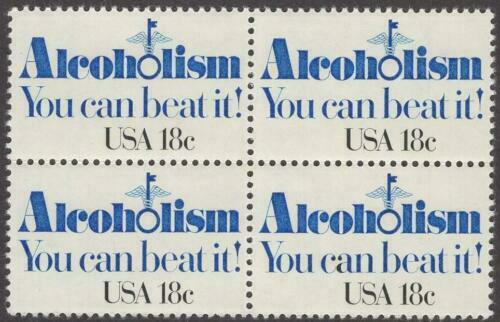1
/
of
1
'USPS'
1981 Alcoholism, You Can Beat It! Block of 4 18c Postage Stamps - MNH, OG - Scott 1927
1981 Alcoholism, You Can Beat It! Block of 4 18c Postage Stamps - MNH, OG - Scott 1927
Regular price
$3.95 USD
Regular price
Sale price
$3.95 USD
Shipping calculated at checkout.
Quantity
Couldn't load pickup availability
On August 19, 1981 in Washington DC, the USPS issued this stamp in an effort to raise awareness of the disease of Alcoholism. Also known as alcohol dependence, it is a disabling addictive disorder, characterized by compulsive and uncontrolled consumption of alcohol despite its negative effects on the drinker's health and social standing. Similar to other drug addictions, alcoholism is medically defined as a treatable disease. The term 'alcoholism' is a widely used term, first coined in 1849 by Magnus Huss, but in medicine was replaced in by 'alcohol abuse' and 'alcohol dependence' in the 1980s. Similarly in 1979 an expert World Health Organization committee disfavored the use of 'alcoholism' as a diagnostic entity, preferring the category of "alcohol dependence syndrome". In the 19th and early 20th centuries, alcohol dependence was called dipsomania, before the term alcoholism replaced it. The biological mechanisms underpinning alcoholism are uncertain, however, risk factors include social environment, stress, mental health, genetic predisposition, age, ethnic group, and sex. Long-term alcohol abuse produces physiological changes in the brain such as tolerance and physical dependence. Such brain chemistry changes maintain the alcoholic's compulsive inability to stop drinking and result in alcohol withdrawal syndrome upon discontinuation of alcohol consumption. Alcohol damages almost every organ in the body, including the brain; because of the cumulative toxic effects of chronic alcohol abuse, the alcoholic risks suffering a range of medical and psychiatric disorders. Alcoholism has profound social consequences for alcoholics and the people of their lives.
Share

